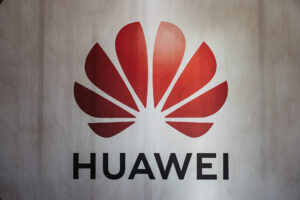ON 24 SEPTEMBER 2021, Meng Wanzhou 孟晚舟, Huawei’s chief financial officer, returned to the People’s Republic of China (PRC) from Canada. On the same day, Canadians Michael Kovrig and Michael Spavor left the PRC for Canada. Media reports described these events as a Cold War–style hostage exchange.2
The bare bones of the Meng Wanzhou–two Michaels saga are as follows: Canada arrested Meng on 1 December 2018 on an extradition request from the United States and a week later the PRC detained the two Michaels on spying charges. Kovrig is a former diplomat and was the North-East Asia senior adviser for the think tank International Crisis Group when he was arrested. Spavor has been described as an entrepreneur who travelled between the PRC and North Korea. Spavor and Kovrig were tried on 19 March and 22 March 2021, respectively, in closed court sessions, as is required by PRC law in cases involving state secrets.3 Canadian officials were denied access to the trials. Spavor was convicted in August; Kovrig’s verdict was pending when he was released.
Canada and the PRC clearly stated their conflicting views on the Meng Wanzhou–two Michaels saga at the UN General Assembly on 27 September 2021. According to Canada, it ‘applied Canadian and international law in response to a request for extradition of [Meng]’. It had ‘observed the rule of law, and two Canadian citizens paid a heavy price for this commitment’.4 In response, the PRC insisted that Spavor and Kovrig committed acts endangering Chinese security, denied any link between their arrests and Meng’s, and claimed the ‘true purpose’ of Meng’s arrest ‘was to surprise Chinese high-tech enterprises and companies as a way to hold back Chinese advancement in terms of science and technology’.5
There may have been another casualty of the saga, at least from the Canadian point of view. On 10 August 2021, the High People’s Court of Liaoning Province upheld the death penalty for Canadian Robert Schellenberg, who was caught with 222 kilograms of methamphetamine in 2014 and sentenced to fifteen years imprisonment for drug smuggling in November 2018 by a court in Dalian.6 On 15 January 2019, the Dalian court retried the case and sentenced him to death.7 Canadian Ambassador to the PRC Dominic Barton claimed the new sentence was ‘part of a geopolitical process’, linking it to Meng’s arrest in Canada8 — a claim government spokespeople denied and condemned.9 As of 20 December 2021, Schellenberg’s case was under review by the People’s Supreme Court, as is required by PRC law before death sentences can be carried out.

The PRC government claimed that Meng’s arrest ‘was to surprise Chinese high-tech enterprises’
Source: Web Summit, Flickr
Canada clearly was not the only country lamenting China’s treatment of its nationals in 2021. On 27 May 2021, Chinese-born Australian citizen Yang Hengjun 杨恒均 was tried on espionage charges.10 Yang, a writer and self-described ‘democracy peddler’, once worked for the PRC’s Ministry of State Security. He had been detained since January 2019.11 In a statement on 21 May 2021, Australia expressed concern about the lack of procedural fairness in Yang’s case and demanded access to Yang’s hearing.12 In response, the Chinese Embassy in Canberra asserted the PRC was handling the case ‘strictly in accordance with law’ and demanded Australia respect China’s judicial sovereignty and refrain from interfering in any form in Chinese judicial authorities’ lawful handling of the case’.13 Yang’s case was heard in a closed session. The PRC Foreign Ministry advised Australian diplomats they were not permitted to attend the trial because the case involved state secrets.14 As of 20 December 2021, a verdict had yet to be announced.
Just a few months earlier, on 5 February 2021, the PRC authorities formally arrested Chinese-born Australian citizen Cheng Lei 成蕾 on suspicion of illegally supplying state secrets overseas.15 Cheng, a well-known news anchor with the China Global Television Network, a state-run English-language news service, had been detained since August 2020. Few details of Cheng’s charges were published, sparking speculation that her arrest was politically motivated, given the backdrop of a deteriorating China–Australia relationship.16 Asked in 2020 whether she thought Cheng was ‘being used as a pawn by China’, Australian Foreign Minister Marise Payne said ‘that sort of premise’ was ‘speculative, at best’.17 Nevertheless, in a statement on 13 August 2021, Payne said the Australian Government was particularly concerned about the lack of transparency about the reasons for Cheng’s detention.18 In response, the Chinese Embassy in Canberra issued a statement demanding Australia ‘respect China’s judicial sovereignty and refrain from interfering in any form in Chinese judicial authorities’ lawful handling of the case’.19 As of 20 December 2021, Cheng’s court hearing was yet to take place.
On 26 September, two days after the release of Meng and the two Michaels, American siblings Cynthia and Victor Liu, who had been banned from leaving the PRC since 2018, when they were twenty-seven and nineteen years old, respectively, were finally allowed to return to the United States.20 No charges had ever been formally made against them. They claimed the PRC had held them to lure back their father, Liu Changming 刘昌明, who is one of the PRC’s top-100 most-wanted fugitives, to face fraud charges. A US State Department spokesperson indicated that the Liu siblings were subjected to a coercive exit ban.21 A PRC Foreign Ministry spokesperson defended the ban, saying the siblings themselves were suspected of economic crimes.22 Despite the proximity of their release to that of Meng’s, a White House spokesperson dismissed speculation of any connection between the two events.23
The above incidents serve, inter alia, as reminders that human rights and the rule of law are issues on which the PRC and the West have long held fundamentally different views. With frictions developing between the PRC and the Five Eyes powers (Australia, Canada, New Zealand, the United Kingdom, and the United States) in recent years, constructive dialogue and engagement are likely to become even more challenging in these already difficult fields.


